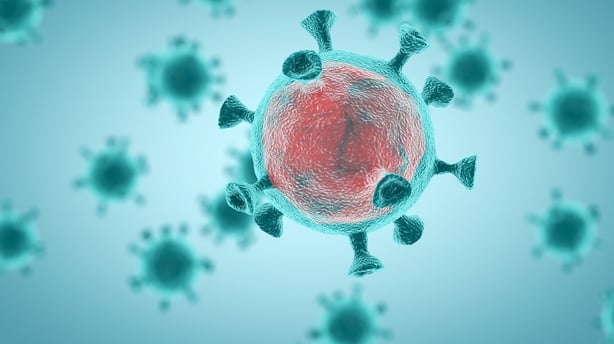The Department of Health has confirmed that a further three people who had previously been diagnosed with Covid-19 have died.
There have now been a total of 1,709 Covid-19 related deaths in Ireland.
An additional 14 new cases of the virus have also been confirmed, bringing the overall number of cases here to 25,334.
Latest figures from the department show that of the 25,320 cases confirmed as of midnight last Sunday, shows that 3,282 cases (13%) have been hospitalised and of those, 418 cases have been admitted to ICU.
8,139 cases are associated with healthcare workers.
So far, 57% of cases are female and 43% are male, with a median age of 48.
Dublin has the highest number of cases at 12,228 (48% of all cases) followed by Cork with 1,533 cases (6%) and then Kildare with 1,434 cases (6%)
Of those for whom transmission status is known: community transmission accounts for 37%, close contact accounts for 60%, travel abroad accounts for 2%.
Chief Medical Officer Dr Tony Holohan said: "As of midnight Monday 14 June, 386,572 tests have been carried out. Over the past week, 18,758 were carried out. 146 tests were positive, giving a positivity rate of 0.8%.
The number of confirmed cases of Covid-19 in hospital intensive care units is now 24, and continues to reduce. There are also six suspected cases in ICU beds awaiting test results.
According to the latest HSE operational figures overnight, there are 71 confirmed Covid-19 patients and 170 suspected cases in hospitals around the country.
The hospitals with the most confirmed cases are all Dublin-based - the Mater with 17, Tallaght 12 and Beaumont which has 10.
Earlier today it was revealed that one more person has died from Covid-19 in Northern Ireland, taking the total to 542.
The North's Department of Health also revealed that just two more people have tested positive for Covid-19, bringing the total number of confirmed cases there to 4,854.
Meanwhile a new trial has found that giving low doses of the generic steroid drug dexamethasone to patients admitted to hospital with Covid-19 reduced death rates by around a third among those with the most severe cases of infection.

Dr Jack Lambert, a consultant in infectious diseases at the Mater Hospital, said the results of the study into dexamethasone "is a good first step" but not the final answer. He told RTÉ's Drivetime that "28% of people dying is still a lot of people".
He also said he was sure there will be a second wave of Covid-19 because more people will get infected once the lockdown is lifted.
Dr Lambert said "we won't see the same carnage as before" because we are in a better place but he was concerned that nursing homes would be unprepared to face another surge as "they are under-resourced".
He is not convinced that, if there's another surge, we will be able to do rapid testing and tracing in the community and turn around the results of those tests in a timely fashion.
Dr Lambert said he had "not seen any manuscript or any document that would give me confidence that's going to happen, but I hope it will".
He also said we have "missed the boat" in relation to face masks and there had been "no clear communication" from the Government on face coverings, even though "we've been talking about it for four weeks".
He said it's a case of "Yes, but, No, but, Yes, but, No, but..."
Will Irish schools reopen full-time this autumn?
Primary and secondary schools in Ireland have been shut from 13 March due to the coronavirus pandemic.
John Boyle, General Secretary of the Irish National Teachers' Organisation (INTO), said he expects schools to reopen at the end of August but could not say if it would be on a full-time basis.
Speaking on RTÉ's Prime Time, he said schools "are planning and working very hard towards a full reopening".
He said it is INTO's ambition to get all children back to school. "It is time to get our children back to school and teachers back in front of them."

Mr Boyle said it is a very ambitious goal but thinks it is achievable as along as it is done safely. He said it is hugely reliant on the work that has to happen over the next 11 weeks.
"We have 11 weeks to prepare for it.....already a lot of work is going on behind the scenes."
He said if the scientific evidence says it is safe for schools to reopen, he does not think the Department of Education will ignore public health advice.
"They will definitely weigh up risk over the importance of the children having their learning."






